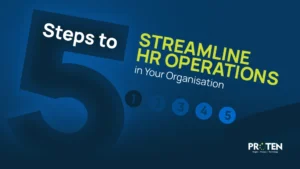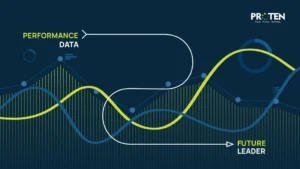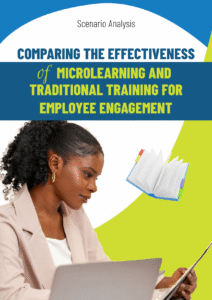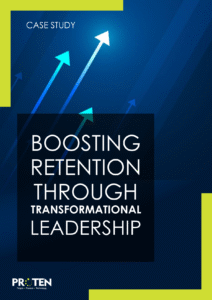Despite Nigeria’s large talent pool of over 118 million people, you may find it challenging to attract and retain executives who can navigate both global standards and the nuances of local business culture.
The pressure to find leaders who deliver results while fitting seamlessly into your company’s vision is real, and the stakes are high. With replacement costs for a top executive ranging from 200% to 400% of their annual salary, successful retention has become a critical business priority.
In this guide, you’ll explore practical steps and proven strategies for hiring executives who not only meet the technical requirements of their role but also drive your organisation forward with insight, influence, and integrity.
What is Executive Recruitment

Executive recruitment is the process you use to identify, attract, and hire top-level leaders who can shape the direction of your organisation. Unlike standard hiring, this is about finding candidates with the experience, vision, and strategic thinking to drive long-term growth.
When you engage in executive recruitment, you focus on leaders who influence company culture, make critical decisions, and steer teams toward measurable outcomes.
The Challenges of Executive Hiring in Nigeria

Hiring executives in Nigeria comes with unique considerations. As you look to strengthen your leadership team, it helps to understand the obstacles you may face along the way:
- Talent Gap: Few leaders combine deep local market knowledge with global-standard expertise.
- High competition: Top executives are often already embedded in other organisations, making recruitment highly competitive.
- Assessing leadership potential: Standard CVs and interviews reveal only part of a candidate’s capabilities; strategic thinking and team management require deeper evaluation.
- Confidentiality concerns: High-level roles often demand discretion, making the search and communication process more sensitive.
- Lengthy recruitment process: Balancing urgency with thorough assessment can be time-consuming, but is essential to secure the right fit.
Read more on the 7 Common Mistakes Companies Make when hiring C-level Executives in Nigeria
Key Qualities to Look for in an Executive Candidate

When you’re evaluating candidates for senior leadership roles, it’s important to look beyond technical skills. The right executive can influence company culture, drive strategy, and inspire teams. Keep an eye out for these essential qualities:
- Strategic thinking: Ability to see the big picture and make decisions that align with long-term goals.
- People leadership: Skills to motivate, develop, and retain high-performing teams.
- Local and global business insight: Understanding of Nigeria’s business environment while keeping global best practices in mind.
- Crisis management: Capacity to navigate challenges calmly and make effective decisions under pressure.
- Cultural fit: Alignment with your organisation’s values, vision, and way of working.
The Executive Recruitment Process (Step-by-Step)

Finding the right executive requires a structured approach. Each stage of the process ensures that the candidate you hire not only has the skills you need but also aligns with your company’s culture and long-term goals. Here’s how you can approach it:
1. Role Discovery & Alignment
Before you begin searching, define the role clearly. Work with your internal stakeholders to outline responsibilities, expectations, and the impact the executive should have on the organisation. This step ensures everyone is aligned and reduces the risk of hiring misfits.
2. Market Mapping
Understand the talent landscape. Identify where potential candidates are, what skills are in demand, and how your competitors are approaching executive hiring. Market mapping gives you insights that help position your company as an attractive destination for top talent.
3. Sourcing Senior Talent
You can’t rely on standard job postings. Look for executives through:
- Direct search and targeted outreach
- Industry networks and professional associations
- Executive recruitment firms that specialise in high-level roles
A proactive approach increases the chances of reaching candidates who aren’t actively looking but would be open to the right opportunity.
4. Screening & Evaluation
Move beyond resumes. Use structured interviews, leadership assessments, and competency evaluations to understand how candidates think, lead, and perform under pressure. This is where you separate strong performers from those who simply look good on paper.
5. Shortlisting & Presentation
Present a curated list of candidates with detailed profiles. Include insights into their track record, leadership style, and cultural fit. This helps decision-makers make informed choices without getting overwhelmed by too many options.
6. Final Interviews & Verification
Facilitate discussions with your senior leadership team. Conduct thorough reference and background checks to validate experience and accomplishments. Ensure the candidate aligns with both the role and your organisation’s strategic direction.
7. Offer, Alignment, and Onboarding
Once you’ve selected a candidate, present a competitive offer that reflects their value and aligns with company standards. Plan for structured onboarding to integrate them effectively into your leadership team and help them start making an impact quickly.
Download our Onboarding, Offboarding, and Layoff Checklist for a better hiring process.
When to Use an Executive Recruitment Firm
There are situations where handling executive recruitment internally may not give you the results you need. Partnering with a specialised recruitment firm can add value, particularly when you face challenges that require expertise, discretion, or reach beyond your immediate network. Consider engaging a firm when:
- The role is highly specialised: If the executive position demands rare skills or industry-specific experience, a recruitment firm can access candidates you might not find on your own.
- You need confidentiality: For sensitive leadership hires, firms can discreetly manage the search without exposing internal strategies or alerting competitors.
- Time is limited: Executive searches can take months. A firm accelerates the process by pre-screening candidates and presenting only the most qualified options.
- You require a broader reach: Firms maintain networks of passive candidates who are not actively seeking new roles but may be open to the right opportunity.
- Assessment support is needed: Experienced recruiters can conduct leadership assessments, verify credentials, and provide insights into a candidate’s strategic thinking and cultural fit.
Conclusion
Hiring the right executive is a strategic investment that shapes your company’s future. By following a structured process, focusing on key qualities, and avoiding common pitfalls, you increase the chances of securing leaders who drive growth, inspire teams, and align with your organisation’s vision.












